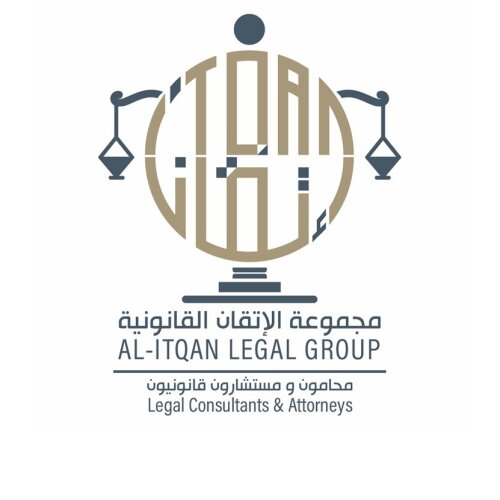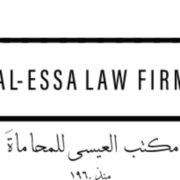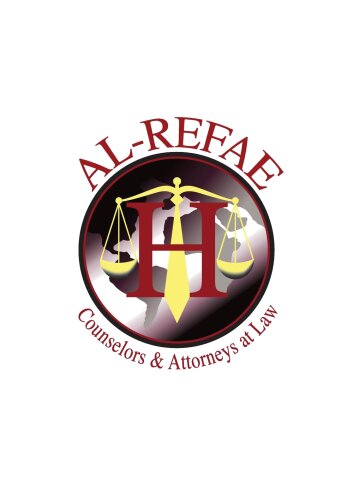Best Structured Finance Lawyers in Kuwait
Share your needs with us, get contacted by law firms.
Free. Takes 2 min.
Or refine your search by selecting a city:
List of the best lawyers in Kuwait
About Structured Finance Law in Kuwait
Structured finance in Kuwait refers to complex financial transactions that involve pooling together various financial assets and then issuing new securities backed by those assets. These transactions often use financial engineering techniques to distribute risk and create opportunities for both investors and organizations seeking capital. In Kuwait, structured finance solutions are commonly employed by corporations, financial institutions, and even government entities to fund large projects or manage risk.
The regulatory environment for structured finance in Kuwait is influenced by both local laws and international best practices. Oversight is provided by key government entities, and legal compliance is crucial for all parties involved in these sophisticated financial arrangements. As the Kuwaiti financial market continues to modernize, legal expertise becomes increasingly important to ensure transparent and lawful execution of structured finance transactions.
Why You May Need a Lawyer
Structured finance transactions are inherently complex and often involve multiple parties, legal documents, and regulatory obligations. Here are some common situations where you may require legal assistance:
- Drafting or reviewing contracts for asset-backed securities, sukuk (Islamic bonds), or securitization transactions
- Ensuring compliance with local and international financial regulations
- Negotiating terms with counterparties or investors
- Advising on risk mitigation strategies
- Resolving disputes arising from structured finance agreements
- Addressing issues related to insolvency or restructuring
- Representing your interests before financial authorities or regulators
Because mistakes or misunderstandings in structured finance transactions can have significant financial and legal consequences, involving a qualified lawyer from the early stages is highly advisable.
Local Laws Overview
Kuwait’s legal framework for structured finance draws on several key statutes and regulatory bodies. The main aspects to be aware of include:
- Kuwait Capital Markets Authority (CMA): The CMA sets the rules for securities issuance, public offerings, and market conduct. It plays a central role in overseeing structured finance transactions.
- Central Bank of Kuwait (CBK): The CBK regulates financial institutions and their structured finance activities, especially regarding asset-backed securities and Islamic finance products.
- Commercial Companies Law: This law governs the formation, operation, and obligations of companies engaging in structured finance deals.
- Islamic Finance Regulations: Many structured finance products in Kuwait, such as sukuk, must comply with Shariah principles. There are required approvals and different contractual frameworks compared to conventional finance.
- Anti-Money Laundering Laws: Any structured finance transaction must comply with stringent anti-money laundering (AML) and counter-terrorism financing regulations.
Legislation and regulatory guidance in Kuwait are subject to change, so it is vital to seek up-to-date legal advice before proceeding with any structured finance project.
Frequently Asked Questions
What is structured finance in the Kuwaiti context?
Structured finance refers to financial instruments or transactions designed to manage risk by pooling assets and issuing securities, often used for large-scale funding needs by corporations or government entities in Kuwait.
Are structured finance products allowed under Islamic law in Kuwait?
Yes, many structured finance products such as sukuk are specifically structured to comply with Shariah law, with legal and regulatory oversight to ensure adherence to Islamic principles.
What are the main regulatory bodies overseeing structured finance in Kuwait?
The Kuwait Capital Markets Authority (CMA) and the Central Bank of Kuwait (CBK) are the primary regulators, each overseeing different aspects of structured finance transactions.
Can foreign investors participate in structured finance deals in Kuwait?
Yes, foreign investors may participate, but certain structured finance deals may have restrictions or require specific approvals depending on the nature of the securities and underlying assets.
What are some common risks in structured finance transactions?
Risks include credit risk, market risk, legal and regulatory risk, and operational risk. Proper legal structuring is essential to identify, allocate, and mitigate these risks.
What is the process for issuing sukuk or asset-backed securities in Kuwait?
The process involves structuring the transaction, drafting legal documents, obtaining regulatory approvals, and ensuring ongoing compliance with applicable laws and market rules.
Is legal due diligence required for structured finance deals?
Yes, thorough legal due diligence is essential to validate asset quality, assess regulatory compliance, and ensure enforceability of the transaction’s legal structure.
Are there specific disclosure requirements for structured finance products?
Depending on the type of security and eligible investors, Kuwaiti regulations may impose detailed disclosure requirements to ensure investor protection and market transparency.
How are disputes in structured finance transactions resolved?
Disputes may be resolved through negotiation, mediation, arbitration, or litigation, often depending on the terms set forth in the transaction documents.
When should a lawyer be involved in the structured finance process?
It is advisable to consult a lawyer as early as possible, ideally during the structuring and negotiation phase, to ensure proper documentation and regulatory compliance.
Additional Resources
For further information or support regarding structured finance in Kuwait, consider the following entities and resources:
- Kuwait Capital Markets Authority (CMA)
- Central Bank of Kuwait (CBK)
- Kuwait Chamber of Commerce and Industry
- Ministry of Commerce and Industry
- Kuwaiti Bar Association for professional legal referrals
- Finance research publications from local universities or economic research centers
These organizations can be useful starting points for understanding regulations, accessing forms or licensing information, and identifying reputable legal service providers.
Next Steps
If you require legal assistance in the field of structured finance in Kuwait, consider the following approach:
- Identify your transaction objectives and gather any relevant financial or organizational documents
- Consult with a qualified lawyer or specialized law firm with experience in Kuwaiti and international structured finance law
- Discuss your needs, potential risks, and desired outcomes with your lawyer
- Work collaboratively to develop a compliant, efficient transaction structure
- Ensure regular communication and timely updates throughout the process
Pursuing legal guidance early can help prevent complications and ensure your structured finance transaction adheres to all applicable laws and regulations in Kuwait.
Lawzana helps you find the best lawyers and law firms in Kuwait through a curated and pre-screened list of qualified legal professionals. Our platform offers rankings and detailed profiles of attorneys and law firms, allowing you to compare based on practice areas, including Structured Finance, experience, and client feedback.
Each profile includes a description of the firm's areas of practice, client reviews, team members and partners, year of establishment, spoken languages, office locations, contact information, social media presence, and any published articles or resources. Most firms on our platform speak English and are experienced in both local and international legal matters.
Get a quote from top-rated law firms in Kuwait — quickly, securely, and without unnecessary hassle.
Disclaimer:
The information provided on this page is for general informational purposes only and does not constitute legal advice. While we strive to ensure the accuracy and relevance of the content, legal information may change over time, and interpretations of the law can vary. You should always consult with a qualified legal professional for advice specific to your situation.
We disclaim all liability for actions taken or not taken based on the content of this page. If you believe any information is incorrect or outdated, please contact us, and we will review and update it where appropriate.
Browse structured finance law firms by city in Kuwait
Refine your search by selecting a city.
















